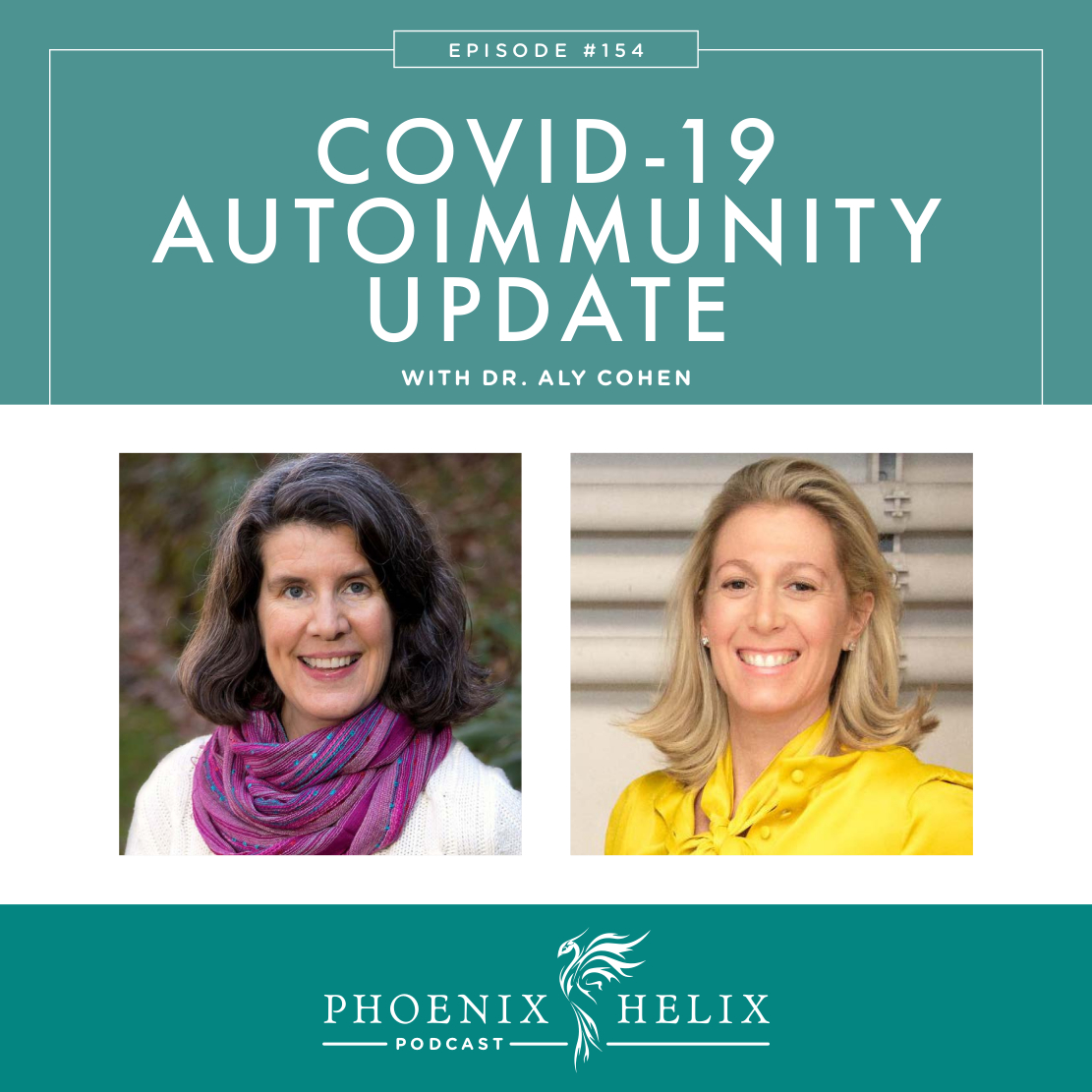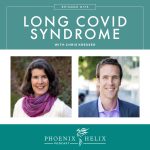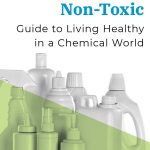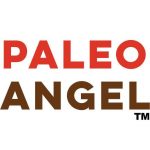How Are People With Autoimmune Disease Faring?
When the Coronavirus pandemic was first cresting in the United States, I recorded an episode with functional nutritionist Andrea Nakayama. That was Episode 144. We talked about what it was, how to protect against it, and what the risks might or might not be for people with autoimmune disease. We also talked about navigating fear, supporting our immune systems with food, and making choices from an empowered mindset. I’m actually really proud of how much of the advice still applies four months later. However, a lot has happened since then. We’re facing decisions about restrictions vs. reopening. We also have data on how people with autoimmune disease are faring worldwide if they contract the virus. In today’s episode, we’ll share new information to help us continue to make the best decisions for our health. My guest is Dr. Aly Cohen, an integrative rheumatologist who blends both Western and Eastern approaches in her medical practice.
Listen to the Show
- Subscribe to my podcast through your favorite podcast app: iTunes, Stitcher, Google, TuneIn, Spotify, Amazon, etc.
- You can also listen to the episode right here through the player below, and if you subscribe to my newsletter you’ll get notified of future episodes.
Podcast: Play in new window | Download
Show Notes
- Intro (0:00)
- Meet Dr. Cohen
- Dr. Aly Cohen is an integrative rheumatologist who I interviewed once before in Episode 120. Listen to that episode to learn more about her background and treatment philosophy. Today, we dove right into the topic so that we could cover as much information as possible.
- Thank You to Our Podcast Sponsor – Paleo Angel (2:30)
- Paleo Angel is one of my favorite AIP-friendly food companies. They’re famous for their Paleo Angel Power Balls – the perfect blend of macronutrients, comprised of a few organic ingredients: coconut, collagen, fruit, and a touch of raw honey. The coconut provides the healthy fats. The collagen is a gut-friendly protein supplement. And there’s just enough honey to satisfy your sweet tooth without sending you on a blood sugar rollercoaster. They’re one of my favorite snacks for traveling, hiking, or just having in the pantry.
- Now, they’ve created a NEW treat called Tiger Mamas. They’re cookies, with tigernuts as the foundation instead of coconut. Despite their names, neither coconut nor tigernuts are actually nuts. Coconut is a drupe and tigernuts are small, starchy tubers. Both are allowed on the paleo autoimmune protocol. The Tiger Mamas are soft and chewy cookies with a sweet and “nutty” flavor.
- Paleo Angel is owned by Amy Ma, a woman with autoimmune disease herself. She shared her healing story of alopecia in Episode 61 of this podcast. Amy developed the Tiger Mama cookie after having her first baby, hence the name.
- Place an order here, and use the code HELIX for 15% off your order.
- How Are COVID-19 Patients With Autoimmune Disease Faring? (4:20)
- COVID-19 is an RNA virus that cannot live without a host, and it can infect anyone. What physicians are trying to discover is who is more likely to fare worse if they become infected.
- Comorbidity is a medical term for two health conditions existing in a patient at the same time. Comorbidities that are associated with worse coronavirus outcomes include heart disease, high blood pressure, high cholesterol, diabetes, obesity, cancer, pregnancy, and autoimmune disease.
- However, a key discovery has been made as patient outcomes have been tracked. People whose health conditions are well managed have better outcomes than people who are unstable. For autoimmune disease, patients experiencing an autoimmune flare are at higher risk than those who are in remission. This is because the worst COVID-19 outcomes involve a severe inflammatory response to the infection. If inflammation in a patient is higher to begin with, the risk of severe inflammation with the coronavirus is higher.
- If you are currently experiencing an autoimmune flare, this information isn’t meant to scare you. It’s meant to empower us to make wise choices about minimizing risk of exposure, and do what we can to lower our inflammation through diet, lifestyle, and mindset. In the first coronavirus podcast, we talked about our circle of concern vs. circle of influence.
- Resources:
- Research: Comorbidity and its Impact on Patients with COVID-19.
- Research: Coronavirus and pregnancy.
- Patient Database: Global Rheumatology Alliance.
- Self-care tips to support immune health: Ep. 144: Coronavirus & Autoimmune Disease Part 1.
- How Do Autoimmune Medications Impact Risk? (10:41)
- All medication decisions should be made in consultation with your physician. This information is provided educationally.
- The American College of Rheumatology publishes updated recommendations as new research emerges.
- Although many autoimmune medications suppress the immune system, if the result is fewer autoimmune flares and more stable health, the medication appears to decrease risk for a poor COVID-19 outcome. That’s because inflammation is a key factor in COVID-19 outcomes. Going off immunosuppressant medication to try to lower your risk of contracting the infection isn’t recommended.
- There are also some medications (like TNF and IL-6 biologics) that may potentially dampen the severity of the COVID-19 infection and are even being looked at as potential coronavirus therapies.
- If you contract the coronavirus, consult with your doctor regarding your medication. Normally with immunosuppressant medications, you stop the medications anytime you get an infection and restart them again once you’ve healed. Because some medications might be beneficial, advice with COVID-19 varies depending on the patient and the medication.
- Some drugs are associated with higher risk for a poor COVID-19 outcome. This includes prednisone at doses higher than 10 mg per day. However, steroids can’t be stopped cold-turkey, and high doses can be life-saving in certain circumstances. Consult with your doctor if you are currently taking prednisone or another oral steroid prescription.
- Lifestyle Factors that Lower Risk (15:58)
- Dr. Cohen is an integrative medicine doctor, so she also recommends self-care measures beyond medication that support a healthy immune system.
- Vitamin D levels are shown to play a role in COVID-19 outcomes.
- Vitamin B & C are also important nutrients.
- Nutrient-dense foods, sleep, and stress management are all essential to the health and resilience of our immune system.
- Navigating the World in the Age of COVID-19 (17:21)
- Dr. Cohen recommends everyone follow the CDC recommendations of social distancing (at least 6 feet) and a mask covering both the mouth and nose when out in public. She herself actually prefers a face shield, because it also protects her eyes and people can see her smile.
- Be aware of where you are placing your hands – wash hands frequently and use hand sanitizer when out in public. Try to avoid touching your face.
- Dr. Cohen carries a bottle of spray alcohol which can sanitize surfaces and her fingertips as needed. A solution of 70% alcohol or higher is known to kill the virus.
- Disposable gloves give people a false sense of security, because they get contaminated the same way hands do, and people usually touch multiple surfaces with the same gloves and then unconsciously touch their face. Dr. Cohen recommends skipping the gloves, which helps you stay more conscious of what you’re touching, and wash your hands frequently.
- For people with autoimmune disease, she recommends no gatherings larger than 10 people, and to know the risk levels of those people. Has anyone traveled recently? Has anyone been exposed to COVID-19? Is anyone displaying symptoms? What precautions do the other people take to lower their risk of infection? Avoid people who are high-risk as well as those who aren’t taking any precautions.
- Gathering outside is safer than gathering inside. That’s because air circulation indoors can carry the virus around a room. It’s more likely to disperse outdoors. Bring your own chair, food, and drink to lower the risk even further. Spending time outdoors also has independent health benefits.
- When exercising outdoors, increase your social distancing. New research shows a virus “slipstream” can occur when you walk, bike, or run.
- Also remember that Loneliness is a risk factor for health, so don’t let fear keep you isolated. Dr. Cohen recommends her patients do socialize, but simply do it wisely with the tips shared above.
- Resources:
- Luminance non-toxic hand sanitizer.
- Switlik – Dr. Cohen’s favorite brand of face shields.
- Thank You to Our Podcast Sponsor: Paleo on the Go (27:27)
- A frozen meal delivery service, 100% of their menu is compliant with the elimination phase of the paleo autoimmune protocol (AIP). They have over 5o items, including entrees, side dishes, broth, AIP-friendly bacon, and desserts.
- Use the code PHOENIX for 10% off your first order.
- The Science of Masks (28:33)
- New research revealed that some people infected with COVID-19 are asymptomatic carriers – they have no symptoms and therefore don’t realize they are a risk to others. That’s when the CDC changed its recommendation and asked everyone to wear masks.
- Masks are altruistic – they protect others, rather than yourself. Social distancing and hand washing are the activities that protect you. These combined efforts help to control the pandemic, which is why numbers decrease in states where masks are mandatory.
- Masks vary in the amount of protection they offer. N95 masks reduce transmission by 95%, and those are being saved for healthcare workers on the front line. Civilians are using cloth masks and they reduce transmission by a lower amount, but are still helpful. Don’t let the perfect be the enemy of the good – any mask is better than no mask.
- To understand how masks work, picture yourself breathing outside in the winter. Remember how your breath appears as a visible mist? This happens in warm weather, too – you just can’t see it. Masks block that mist, and the mist from an infected person contains virus particles.
- If you’re shopping for a mask, or making one yourself, there are steps you can take to increase its protection: have more than one layer of cloth, choose tightly woven cloth, and two different types of fabric.
- Mask size matters. You want one large enough to cover your nose and mouth. But you don’t want it to gap too much either. You also want it to be as comfortable as possible.
- When taking a mask on and off, remove it by the elastic or ties, and avoid touching the mask itself. If you’re in public, bring a plastic bag or envelope to hold your mask when it’s not in use rather than putting it down on a public surface. Wash your mask when you return home.
- Mask myth #1: They cause hypoxia (low oxygen levels). For hospital workers that wear the high-density N95 masks for long hours every day without a break, there is some concern. However, this isn’t true for cloth masks or even N95s worn for shorter periods of time. It is possible for people to feel claustrophobic in a mask and mistake that for hypoxia. Here’s the official debunking of this myth by medical professionals: AFP Fact Check. You can also see fitness professional, Darryl Edwards, bust this myth by doing high intensity exercise with a mask and testing his oxygen levels on Instagram: Post 1, Post 2, Post 3.
- Mask myth #2: They spread the virus more. Research shows the opposite is true – wearing masks markedly reduces the number of infections. It is true that people may unconsciously touch the outside of the mask which may have virus particles on it and then touch surfaces. This is why masks don’t replace the need for hand washing and sanitation. Follow the tips above for best practices when wearing a mask.
- One final note: Dr. Cohen personally wears a face shield, because in addition to protecting others, it also offers a higher level of protection for the wearer.
- Resource: How to Choose and Wear a Mask.
- Taking Precautions with Objects (39:23)
- For deliveries, if it’s a non-perishable item, Dr. Cohen recommends letting it sit for 48 hours before opening the box. That should be enough time to kill the virus, because coronavirus needs a living host to survive. The same delay period applies for items you pick up in town and bring home.
- When you’re out in public, use caution when touching things like door handles and light switches. Dr. Cohen carries an alcohol spray bottle with her.
- Resource: COVID-19 and Surfaces.
- Immune Support Supplements (41:36)
- The foundational supplements that Dr. Cohen recommends to all of her patients include a high-quality multi-vitamin, probiotic, and omega 3 fish oil.
- Vitamin D is essential to immune health but is best supplemented alongside lab tests. It’s a fat-soluble vitamin, so it is possible to take too much.
- Zinc is known to decrease viral replication, and 15-30 mg through food or supplement is beneficial. It’s usually included in a good multi-vitamin.
- One supplement that Dr. Cohen doesn’t recommend is melatonin. She’s seen articles recommending it as a coronavirus prevention or treatment, but melatonin is something our body produces naturally, and when supplemented, that natural production reduces or stops altogether. The best way to stimulate your body’s natural production is to sleep in a pitch black room. (Resource: How to Make Your Room Pitch Black at Night.)
- Quality between supplements varies. Look for allergen-free brands that use third-party testing for purity and potency. Also read ingredient lists carefully and avoid artificial colors and preservatives.
- Supporting Our Mental Health During a Pandemic (48:17)
- Social connection. Make the effort to have outdoor in-person meetings with the people you love. Human beings are social creatures, and we aren’t built for 100% computer connection only.
- Spiritual support. If you belong to a church, synagogue, mosque, etc. take advantage of their computerized offerings.
- Nature. It’s incredibly soothing to body and soul. Parks are great, but even getting outside in your neighborhood is beneficial.
- Prioritize sleep. It’s essential to both physical and mental health.
- Exercise is also wonderful for both physical and mental health.
- For other ideas, listen to Podcast Episode 148: Self-Soothing vs. Self-Care.
- Dr. Cohen’s New Book: Living Healthy in a Chemical World (51:26)
- Dr. Cohen invested 8 years of work into this book, along with her co-author Fredrick vom Saal.
- It’s the consumer version of their textbook, Integrative Environment Medicine.
- It covers all aspects of environment health – how chemicals in our environment impact our health. In food, water, personal care products, cleaning supplies, fabrics, furniture, and more. The book is full of practical advice for reducing exposure and living a healthier life.
- Buy here: Non-Toxic Guide to Living Healthy in a Chemical World.
- Outro (53:45)
- Dr. Aly Cohen is accepting new patients locally in Princeton, NJ, and she does telehealth consults with people around the world. She also has a passion for non-toxic living. Follow her on social media for educational posts on reducing toxins in our lives @thesmarthuman. She also has a Ted Talk: How to Protect Your Kids from Toxic Chemicals.
- Eileen (your podcast host) is the author of multiple books, written to help people thrive with autoimmune disease. Learn more on the Books Page.
- If you like this podcast, follow or subscribe through your favorite podcast app. You can also subscribe to Eileen’s biweekly newsletter.
- Check out the entire archive of podcast episodes.
You May Also Be Interested In
Spreading the Word
If you like the podcast, please leave a positive review in iTunes. It would mean the world to me, and also helps others find the podcast. Here are some quick instructions using your iPhone:
- If you are already subscribed to my podcast: (1) Click the purple podcast icon. (2) At the bottom of the screen, click Library. (3) At the top of the screen, click Shows. (4) Click the Phoenix Helix podcast image. (5) Scroll down the page, and you’ll see Ratings and Reviews. Scroll down a little bit more and click on Write a Review. This will bring up the review screen. Tap 5 stars (if you love the podcast), and then click in the title box, and it will bring up the keyboard. Enter a title and short review. (6) Click Send in the upper right corner. (7) Thank you! Positive reviews give the podcast a higher search ranking in iTunes, helping people find it and letting them know it’s a quality podcast and worth their time to listen.
- If you haven’t subscribed to my podcast: (1) Click the purple podcast icon. (2) In the lower right corner, click the magnifying class. (3) Type Phoenix Helix in the search box. (4) Click the podcast cover in the Show list. (5) If you’d like to subscribe, click the + sign at the top of the screen. (6) To write a review, scroll down the page, and you’ll see Ratings and Reviews. Scroll down a little bit more and click on Write a Review. This will bring up the review screen. Tap 5 stars (if you love the podcast), and then click in the title box, and it will bring up the keyboard. Enter a title and short review. (7) Click Send in the upper right corner. (8) Thank you! Positive reviews give the podcast a higher search ranking in iTunes, helping people find it and letting them know it’s a quality podcast and worth their time to listen.








